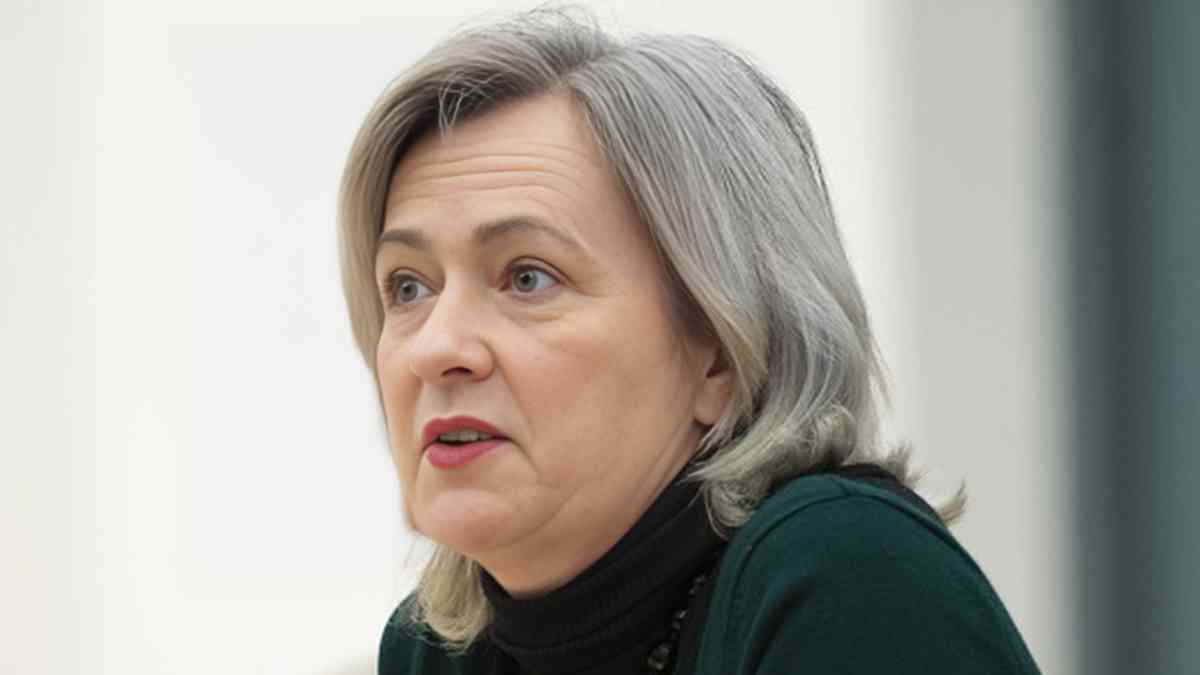Liz Saville Roberts: Championing Welsh Identity and Progressive Politics

Liz Saville Roberts stands out as one of the most influential and principled voices in modern Welsh and British politics. Representing Dwyfor Meirionnydd since 2015 under the banner of Plaid Cymru, she has consistently promoted the causes of social justice, equality, and cultural preservation. As the first female MP from her party and its Westminster leader since 2017, her career reflects a commitment to championing the Welsh language, defending civil liberties, and holding Westminster accountable on behalf of Wales.
Early Life and Education
Born on 16 December 1964 in Eltham, London, Liz Saville Roberts grew up with strong values of integrity and education. Although born in England, her identity is deeply tied to Wales—a connection she solidified through language, public service, and community engagement.
She studied languages at Aberystwyth University, where she not only excelled academically but also learned to speak Welsh fluently, a choice that would significantly influence her future political journey. Her early years in Wales helped her understand the cultural richness and the socio-political challenges faced by Welsh-speaking communities.
A Career in Education
Before entering national politics, Roberts dedicated her life to education. She worked for many years in Welsh-medium further education, helping nurture the next generation of bilingual speakers in North Wales. Her commitment to preserving and promoting the Welsh language through education remains one of her signature causes.
Her professional journey in education gave her first-hand insight into the barriers facing young people and rural communities. This experience later shaped her policies and parliamentary work, particularly in areas such as digital infrastructure, youth opportunity, and education funding.
Local Political Roots: Gwynedd County Council
Liz Saville Roberts entered politics in 2004 as a councillor on Gwynedd County Council, representing the Morfa Nefyn ward. For over a decade, she served at the local level, developing a strong connection with her constituents and building trust through consistent grassroots work.
During her tenure, she actively supported policies that aligned with Plaid Cymru’s principles, including sustainable development, Welsh language integration in governance, and stronger devolution.
Election to Parliament
In May 2015, Roberts made history by becoming the first female MP from Plaid Cymru, representing the Dwyfor Meirionnydd constituency. Her victory marked a turning point not just for the party but also for female representation in Welsh politics.
Her maiden speech in the House of Commons eloquently highlighted the issues of rural disadvantage, access to public services, and the need for stronger representation of Wales in Westminster. She has since won re-election multiple times (2017, 2019, and 2024), each time with increased majorities—a testament to her popularity and effectiveness.
Leadership in Westminster
Following the 2017 general election, Roberts was appointed Leader of Plaid Cymru in Westminster. Her role involves holding the UK government to account, especially on matters that directly affect Wales but often receive limited attention in broader UK discourse.
As leader, she has taken strong stands on:
-
Civil liberties and surveillance: Opposing expansion of intrusive state monitoring laws.
-
Justice reform: Campaigning for fairer treatment of Welsh prisoners and greater devolution of justice powers.
-
Asylum and migration: Advocating for humane, transparent immigration policies, including lifting the ban on asylum seekers working while awaiting decisions.
-
Women’s rights: Proposing reforms like a rape shield law and supporting efforts to reduce domestic violence.
Key Policy Focus Areas
1. Welsh Language and Culture
A passionate advocate for the Welsh language, Roberts consistently champions language rights in Parliament. She is one of the few MPs who regularly uses Welsh in Commons proceedings, and has fought for the use of minority languages in governmental and legal processes.
Her vision is not just about cultural preservation but also about embedding linguistic diversity into policymaking and civic life.
2. Justice and Home Affairs
As Plaid Cymru’s spokesperson for Home Affairs and Justice, Roberts has persistently argued that Wales should have control over its own justice system, similar to Scotland. Her concerns range from the overrepresentation of Welsh individuals in UK prisons to the lack of Welsh-language legal services.
In 2017, she introduced a Private Members’ Bill proposing electronic tagging for domestic abusers—a policy that gained cross-party attention and support.
3. Civil Liberties and Privacy
Roberts is a vocal critic of the UK’s growing surveillance state. She has warned against overreach in legislation like the Investigatory Powers Act and frequently raises concerns about data privacy, especially for marginalised and rural communities.
Her principled stand on civil liberties reflects her broader commitment to a transparent, accountable government that respects individual freedoms.
4. Climate and Rural Issues
Representing a rural constituency, Roberts understands the importance of sustainable farming, digital access, and renewable energy. She has been a persistent voice in demanding rural broadband upgrades, green infrastructure investment, and fairer treatment of farmers and smallholders in post-Brexit agricultural policies.
Personal Life
Liz Saville Roberts lives in Morfa Nefyn, Gwynedd, with her husband Dewi Wyn Roberts, whom she married in 1994. The couple has twin daughters. Her family has deep ties to North Wales, and she often speaks about the challenges facing families in isolated rural communities.
Her mother, Nancy Saville, was a scientist who suffered from dementia, prompting Roberts to raise awareness of neurodegenerative diseases and campaign for better care for elderly individuals and carers alike.
An interesting personal note: she is also the cousin of the British artist Jenny Saville, adding a layer of creative lineage to her already multifaceted profile.
You can follow her official updates and community engagement on her Facebook page.
Voting Record and Parliamentary Style
Roberts has consistently aligned with Plaid Cymru’s progressive stance. Her voting record includes:
-
Supporting EU integration and opposing a hard Brexit.
-
Advocating for workers’ rights, including fair pay and union protections.
-
Opposing military intervention and promoting diplomacy.
-
Backing climate action, sustainable development, and environmental protection.
In debates, she is known for her composed yet firm tone, offering sharp critiques without veering into personal attacks. Her speeches are often bilingual and rich in cultural and social context.
Recognition and Influence
In 2019, Roberts was appointed to the Privy Council, a recognition of her contributions to Parliament and public service. Her position also enables her to advise the monarch on governmental matters—an honour shared by only a select few MPs.
Despite Plaid Cymru’s relatively small presence in the Commons, she has carved out a respected leadership role, gaining the admiration of colleagues across party lines for her diligence, ethics, and intellect.
Challenges and The Road Ahead
The future holds both opportunities and challenges for Liz Saville Roberts. As Westminster politics becomes increasingly polarised, her calm and principled leadership offers a refreshing alternative. With devolved governance continuing to evolve, she remains committed to securing a stronger voice for Wales on the UK stage.
Her long-term vision includes:
-
Full devolution of policing and justice to Wales.
-
A fairer funding model for Welsh services.
-
Preserving rural communities and reversing youth depopulation.
-
Expanding cultural education and bilingualism.
Conclusion
Liz Saville Roberts is not merely a politician—she is a steward of Welsh identity, a defender of civil liberties, and a committed voice for those who often go unheard in British politics. Her parliamentary achievements, personal integrity, and unwavering dedication to justice place her among the most impactful and principled figures in contemporary UK governance.
In an era where authenticity and consistency are rare, Liz Saville Roberts stands as a compelling example of leadership rooted in conviction, compassion, and community.



